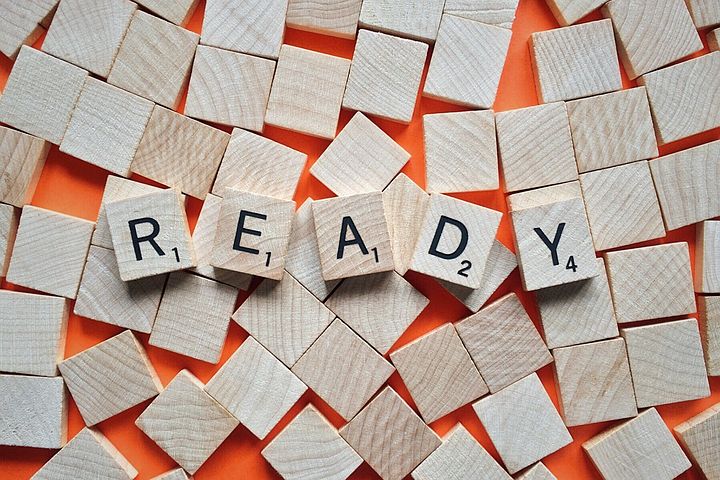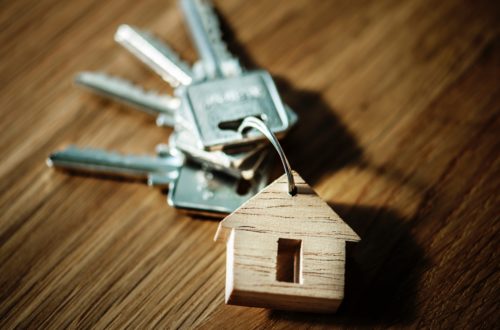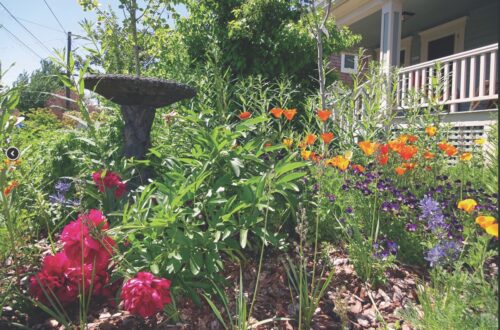Have you had the dream? You know, the one in which you are panicked because you forgot to study for a test and you wake up all anxious, in a sweat, with your heart pounding? Most of us have had some version of it. I think that kind of dream demonstrates that we know subconsciously how important it is to be prepared.
I have always been a planner. When I was twelve, we were living at the coast on Devil’s Lake. There was a forest fire to the east of us and we could see the smoke. I remember mentally planning what we would take with us in our two boats if the fire got too close and the roads were inaccessible. I feel more comfortable being prepared for eventualities. Living with anxiety doesn’t suit my personality.
The Latin root of PREPARE means to make ready. I knew that Be Prepared is the motto of the Boy Scouts, but I didn’t know why Robert Baden-Powell chose it so I looked it up.
‘Be prepared for what?’ someone once asked Baden-Powell, the founder of Scouting, “Why, for any old thing.” said BadenPowell. “The training you receive in your troop will help you live up to the Scout motto. When someone has an accident, you are prepared because of your first aid instruction. Because of lifesaving practice, you might be able to save a nonswimmer who has fallen into deep water.” But Baden-Powell wasn’t thinking just of emergencies. His idea was that all Scouts should prepare themselves to become productive citizens and to give happiness to other people. He wanted each Scout to be ready in mind and body for any struggles, and to meet with a strong heart whatever challenges might lie ahead. Be prepared for life – to live happily and without regret, knowing that you have done your best. That’s what the Scout motto means.”
I was impressed by the sentiment expressed in those last two sentences – “to be ready in mind and body for any struggles, and to meet with a strong heart whatever challenges might lie ahead. Be prepared for life – to live happily and without regret, knowing that you have done your best.” I wonder if this way of thinking arose because people were more interdependent in the past when they relied on each other out of necessity.
How many of us are prepared in this way? Do we think ahead, or do we simply float along, being taken by surprise when the unexpected, or the inevitable, happens. I told a friend that we had our wills drawn up. She replied “Oh! I haven’t done that. I don’t want to think about dying!” Well, okay, but it’s going to happen.
When our son was about eight years old, we adopted an abandoned mother cat and her kitten, Mom and Margalo. I was watching Mom teaching Margalo how to fight so she could protect herself. At one point, she had Margalo pinned down by the throat, and I was wondering if I should step in. When the lesson was over, Margalo had not been hurt at all. It struck me that animals may do a better job than humans at preparing their
young for life.
In the past, children were active participants in the family’s daily work, learning the skills needed to be successful and to survive. As times changed and incomes increased, children’s labor was mostly unneeded. Is this a good thing, or does it mean that today’s young folks are less ready for what might come? I read about young people who, having finished school and moved out on their own, have no idea how to proceed with day-to-day life – cooking, cleaning, balancing their budget, sewing on a button – to say nothing of how to handle out-of-the ordinary situations. Is this not a disservice to them?
The lack of training in daily skills does not apply only to those under 30. I think mine was the last recent generation (the Baby Boomers) who learned more about capability from their parents than generations since. However, even my generation wasn’t probably as well prepared as the one that experienced the Great Depression.
We have all experienced the Great Recession, and can use that as a reminder for how the unexpected occurs. The unexpected doesn’t have to be as monumental as a recession. One very cold winter, shortly after we moved into our house, the pipes in our upstairs shower froze, and then broke, sending a torrent of water through the bathroom floor, down to the hallway on the main floor, through that floor, and into the basement. Yikes! What I learned from that experience: know exactly where the water turn-off is in the home. We had to ask our neighbor across the street to help us, which wasted precious time.
Take some time to think what it is that you need to prepare for. If you eat out a lot, maybe you can learn more about cooking so you could save money. Whatever you choose to work on, remember to give yourself some time and a pat on the back for taking a step toward being ”ready in mind and body for any struggles, and to meet with a strong heart whatever challenges might lie ahead. Be prepared for life – to live happily and without regret, knowing that you have done your best.” I would add that being prepared makes you feel more in control, more creative, and more confident.
Hopefully you won’t ever have the dream again. Rest well.
Betty Shelley, and her husband, Jon, have filled only one 35-gallon can of garbage per year since 2006. In her three-session class, “Less is More: Getting to One Can of Garbage a Year”, Betty Shelley teaches her techniques for reducing waste. For more information reduceyourwasteproject.com






